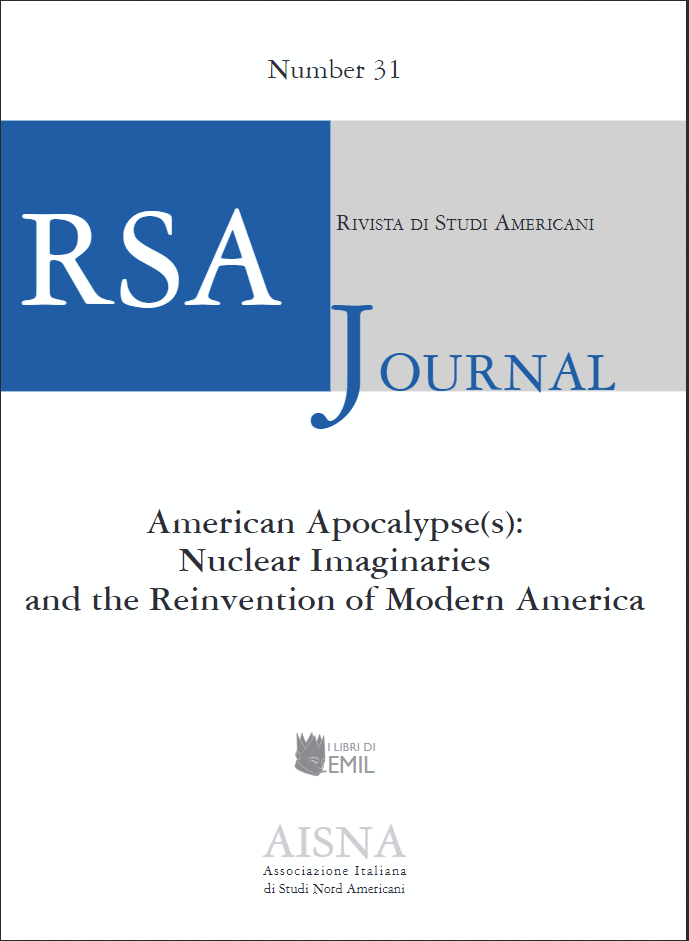Southern Wastelands
“Alas, Babylon,” “The Road,” and the A-Bomb in the Garden
DOI:
https://doi.org/10.13135/1592-4467/8497Keywords:
dystopian, wasteland, post-atomic, American SouthAbstract
The southern United States have historically been depicted as a quintessential American Eden. In foundational works like John Smith’s Generall Historie of Virginia and Thomas Jefferson’s Notes on the State of Virginia the southern states elicit comparison with a luxuriant natural paradise and, after Jefferson’s treatise, an eco-democratic utopia. Not until recently literature has adopted the region as a post-apocalyptic locale, with some (still sporadic) examples in which the image of the garden has been replaced with that of a deathscape. When it comes to specifically post-atomic backgrounds, instances are even scarcer. About the only novels that investigate the collapse of the South’s Edenic imagination through bomb-related scenarios are Pat Frank’s Alas, Babylon and Cormac McCarthy’s The Road. While Frank’s novel is a classic (and stereotypical) Cold-War apocalyptic novel from the 1950s, McCarthy’s re-inscribes that psychological atmosphere into a contemporary ecological, existentialist, and political narrative, reviving the A-Bomb milieu without making any clear reference to an actual atomic aftermath. Drawing equally from postapocalyptic culture, social criticism, and the theory of narrative spaces, this essay compares these two depictions of the American South as a dystopian post-atomic wasteland in order to map the evolution of southern literature’s relationship with the bomb.
Downloads
Published
Issue
Section
License
RSAJournal will apply a CC BY 4.0 license to all its contributions starting with issue 37 (2026). Previous issues are licensed under a CC BY-NC-ND licence.





